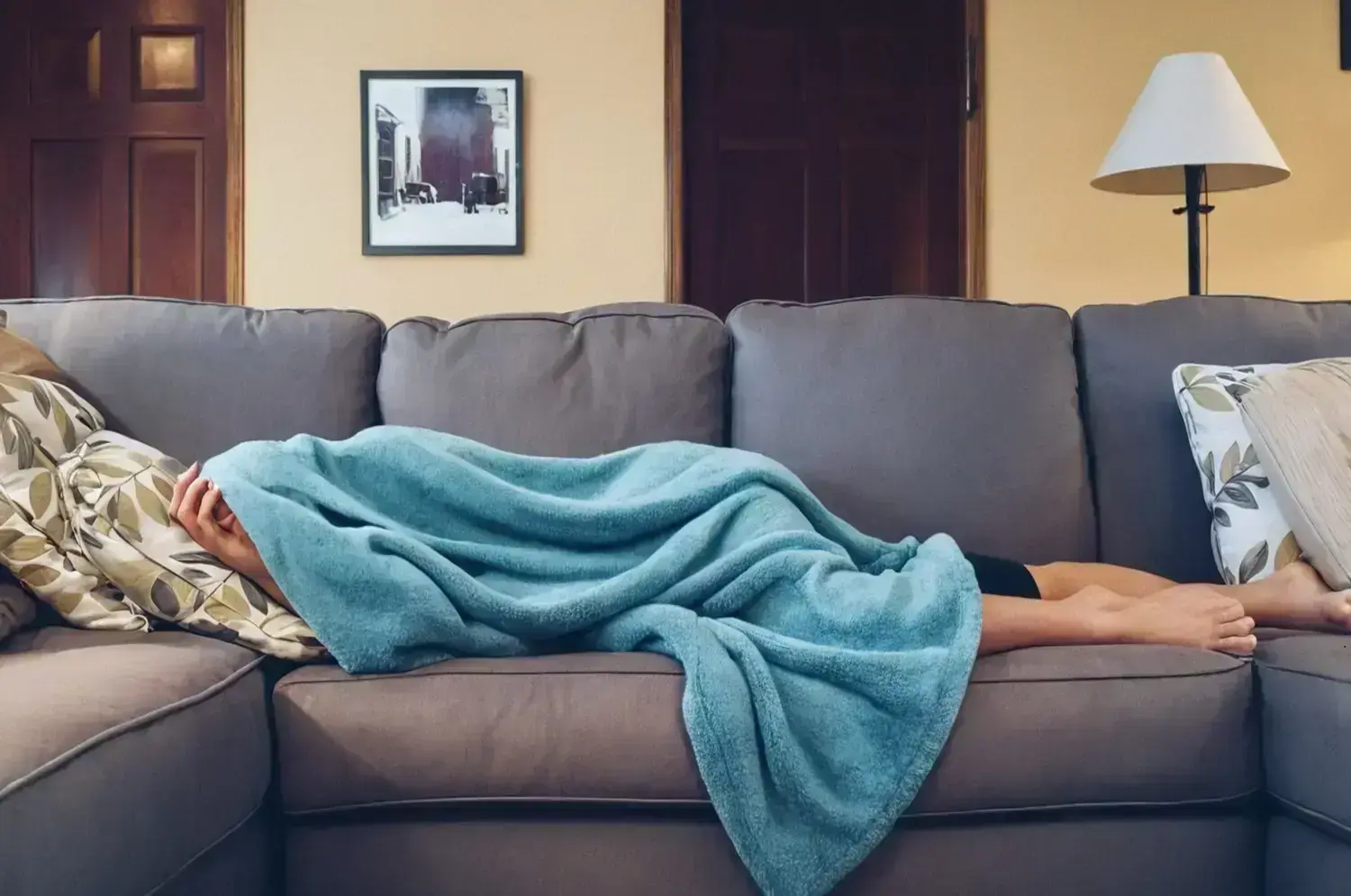Do you ever choose a cozy night at home over social gatherings? Psychology says that choice reveals surprising insights about your personality.
Table of Contents
ToggleWhy Some People Prefer Staying Home
When we talk about social behavior, one fascinating aspect is the psychology of staying home. While many thrive in social gatherings, others find greater fulfillment within the walls of their own space. This isn’t about being antisocial—it’s about understanding personal preferences rooted in psychology and lifestyle choices.
The Psychology of Introversion vs. Extroversion
Psychologists often explain this difference through the lens of introversion and extroversion. Extroverts gain energy from being around others, whereas introverts recharge through solitude. For an introvert, staying home isn’t a sign of isolation—it’s self-care. This psychological trait influences how people seek balance, process emotions, and manage energy levels.
Comfort, Safety, and Personal Space as Motivators
Home represents comfort, predictability, and safety. Many people feel more authentic when surrounded by their own belongings, routines, and personal space. In a world that often feels rushed and overwhelming, the home becomes a sanctuary where one can relax, reflect, and engage in activities that foster inner peace. The psychology of staying home also highlights the deep human need for control over one’s environment—a feeling that crowded or unpredictable settings rarely provide.
Common Psychological Traits of Homebodies
High Self-Awareness and Reflection
The psychology of staying home often points to a higher level of self-awareness. Homebodies tend to enjoy time alone, using solitude for deep reflection, journaling, or mindful observation. This introspection helps them better understand their emotions, values, and personal growth journey.
Strong Creative Tendencies
Many people who prefer staying home channel their energy into creative outlets. Whether it’s painting, writing, music, or even problem-solving, solitude often fuels imagination. In psychology of staying home research, creativity is seen as a natural byproduct of reduced external distractions.
Preference for Meaningful Relationships
Homebodies usually don’t seek large social circles. Instead, they value intimate, authentic connections over casual acquaintances. This trait reflects the psychology of staying home—where depth and trust in relationships matter more than quantity.
Lower Sensation-Seeking Behavior
The psychology of staying home also links to lower sensation-seeking behavior. Rather than chasing constant thrills or risky adventures, homebodies find comfort in familiar, peaceful settings. Their sense of joy comes from stability, hobbies, or quiet routines instead of external stimulation.
Higher Emotional Stability in Solitude
Unlike many who fear loneliness, homebodies often thrive in solitude. Psychology of staying home highlights that these individuals show greater emotional resilience and stability when alone. Their ability to stay calm and balanced without external validation is a powerful psychological strength.
Benefits of Staying In vs. Going Out
Mental Health Advantages
The psychology of staying home highlights that solitude is not the same as loneliness. Choosing to stay in can create a calming environment where stress levels drop and mental clarity improves. Unlike crowded social gatherings that sometimes trigger anxiety, being at home allows the mind to reset, reducing overstimulation and supporting emotional balance. For introverts and even ambiverts, this downtime acts as a mental recharge that directly contributes to long-term well-being.
Productivity and Personal Growth
One of the underrated benefits of staying in is the space it creates for personal development. When distractions are limited, you’re more likely to read, learn a new skill, or focus on creative hobbies. Many people find that their best ideas emerge in quiet environments. From journaling to online courses, staying home often provides the mental bandwidth for meaningful self-improvement, something the constant rush of social outings rarely offers.
Avoiding Social Burnout
While social interaction is healthy, overdoing it can lead to social fatigue. The psychology of staying home suggests that setting boundaries on social commitments prevents emotional exhaustion. By occasionally choosing comfort over constant activity, you protect your energy and avoid the “always on” pressure of modern life. This balance not only preserves relationships but also ensures you’re more present and engaged when you do go out.
When Staying In Becomes a Problem
Understanding the Psychology of Staying Home
Choosing to stay home isn’t always negative. For many, home is a safe place to recharge, reflect, and find peace. Psychology of staying home shows that introverts or those needing rest often prefer solitude. However, when staying in starts to replace essential social interaction, it may indicate deeper issues like loneliness, anxiety, or even depression.
Signs of Social Isolation
It’s important to distinguish between healthy alone time and harmful isolation. Some common signs include:
- Declining invitations regularly, even when you want company.
- Loss of interest in hobbies, work, or connecting with others.
- Increased feelings of sadness, anxiety, or irritability.
- Relying heavily on digital interactions while avoiding face-to-face contact.
- Changes in daily routine such as disrupted sleep or poor self-care.
If these patterns become consistent, they may signal that staying in is no longer a choice but a coping mechanism.
Balancing Personal Space with Healthy Social Interaction
The key lies in balance. Alone time can boost creativity and mental clarity, but humans are inherently social beings. Here are practical strategies to maintain balance:
- Schedule social check-ins: Even a short call with a friend can uplift mood.
- Mix online and offline interactions: Digital connections are great, but in-person interactions provide emotional depth.
- Set personal boundaries: It’s okay to decline plans, but avoid withdrawing completely.
- Engage in community activities: Volunteering, group hobbies, or fitness classes encourage healthy interaction.
- Seek professional help if needed: A psychologist can help uncover underlying reasons for chronic isolation.
How to Embrace Your Homebody Traits Positively
Build Meaningful Routines
The psychology of staying home highlights that routines give structure, purpose, and emotional balance. Instead of viewing your homebody nature as limiting, create daily rituals that nurture both productivity and relaxation. Morning stretches, journaling, or designated “focus hours” can help you stay disciplined, while evening wind-down practices—like reading or herbal tea—reinforce a sense of calm. Meaningful routines ensure that your home-centered lifestyle feels intentional and fulfilling rather than stagnant.
Use Solitude for Creativity
Homebodies often thrive in solitude, and psychology of staying home suggests that quiet moments fuel creativity. Without the distractions of constant social outings, you can channel your energy into hobbies, passion projects, or skill-building. Whether it’s writing, painting, coding, or experimenting in the kitchen, solitude provides the mental space to dive deep into activities that bring genuine satisfaction. Instead of feeling isolated, see this as your chance to cultivate innovation and self-expression.
Stay Socially Connected Online or in Small Groups
While embracing the psychology of staying home, it’s important to balance solitude with healthy connections. You don’t have to attend large gatherings to feel socially fulfilled. Instead, prioritize intimate meetups with close friends, family dinners, or engaging online communities that match your interests. Video calls, virtual book clubs, or small game nights can offer meaningful interactions without draining your energy. This approach ensures you maintain strong relationships while honoring your natural preference for a cozy, home-based lifestyle.
Read Also:
10 Best Brain Exercises to Sharpen Your Mind Daily
What Is Love? The Truth Behind the Most Powerful Emotion
FAQs:
-
Is preferring to stay home a sign of introversion?
Preferring home often aligns with introversion, but can also reflect comfort, personal preference, or lifestyle.
-
Can staying home too much affect mental health?
Yes, excessive isolation may cause loneliness, reduced social skills, or increased anxiety and depression symptoms.
-
What does psychology say about people who avoid parties?
Psychology suggests avoiding parties may indicate introversion, social anxiety, or simply valuing quiet personal environments.
-
Are homebodies less social than others?
Not necessarily; homebodies may prefer smaller, deeper connections instead of frequent, large-scale social gatherings.
-
How can I balance staying in with maintaining friendships?
Schedule regular calls, host small gatherings, or engage in online communities to nurture meaningful friendships.










1 thought on “Psychology reveals the surprising common traits of those who prefer to stay home rather than go out with friends”